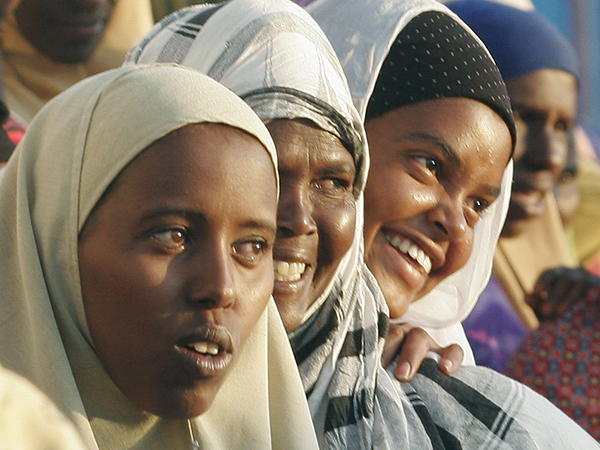Having a stake in their future

Events in Egypt and across the region are showing once again that people from all sectors and levels of society need to feel they have a stake in their future.
Interpeace, one of the world’s largest peacebuilding organizations, has been working across the globe to enable societies to create the constructive socio‐political dynamics that contribute to a peaceful future.
Scott M. Weber, Director‐General of Interpeace said: "For the last 15 years, Interpeace has put those in fragile societies at the centre of the process to design sustainable solutions."
The 2009‐2010 Interpeace Annual Report is being distributed now and is available here.
The report covers the organization’s fifteenth year of supporting locally led peace processes. Recent achievements include our efforts to assist the successful Presidential elections in Somaliland, informing public opinion on viable options for a political settlement in Cyprus, on developing a broad‐based dialogue on unity in Rwanda, and supporting strategies to prevent violence relating to youth gangs in Central America.
This latest Interpeace Annual Report also introduces six extraordinary individuals from over 300 peacebuilders that support the work of Interpeace. They work in some of the world’s most difficult and challenging environments across Africa, Asia, Central America, Europe and the Middle East.
Scott Weber adds: “By putting faces to the brave individuals who navigate the complex, rapidly changing, and often dangerous dynamics of fragile and conflict affected societies, we underscore that people are at the heart of building lasting peace and a positive future.”
The report also celebrates President John A. Kufuor’s first year as Chairman of the Interpeace Governing Council. Former President of Ghana, he took over from President Martti Ahtisaari, former President of Finland and Nobel Peace Prize laureate, who served the organization from 2001–2009.
Financial highlights include the organization‐wide transition to the highest financial reporting standard, International Financial Reporting Standards (IFRSs) in 2010. IFRSs are set by the International Accounting Standards Board (IASB).
The organization was also awarded the Swiss ZEWO seal of approval that certifies that the donations Interpeace receives will be used economically, efficiently and for their designated purpose. Increasingly sought after by governments and societies, the Interpeace budget for 2009 was 18.2 million USD and estimated to be over 22 million for 2010.
